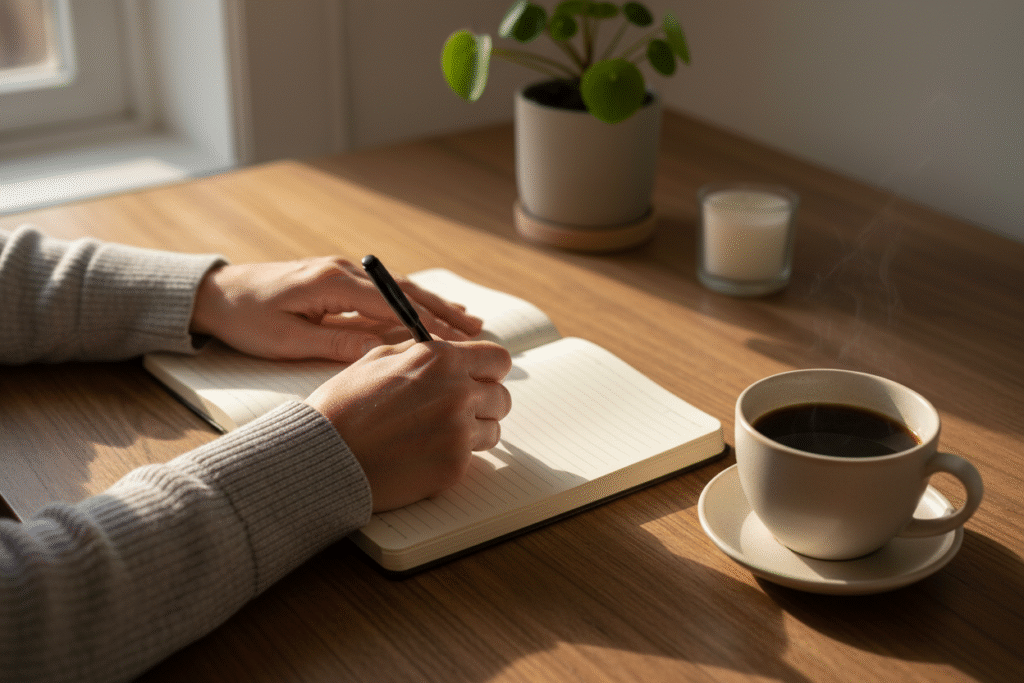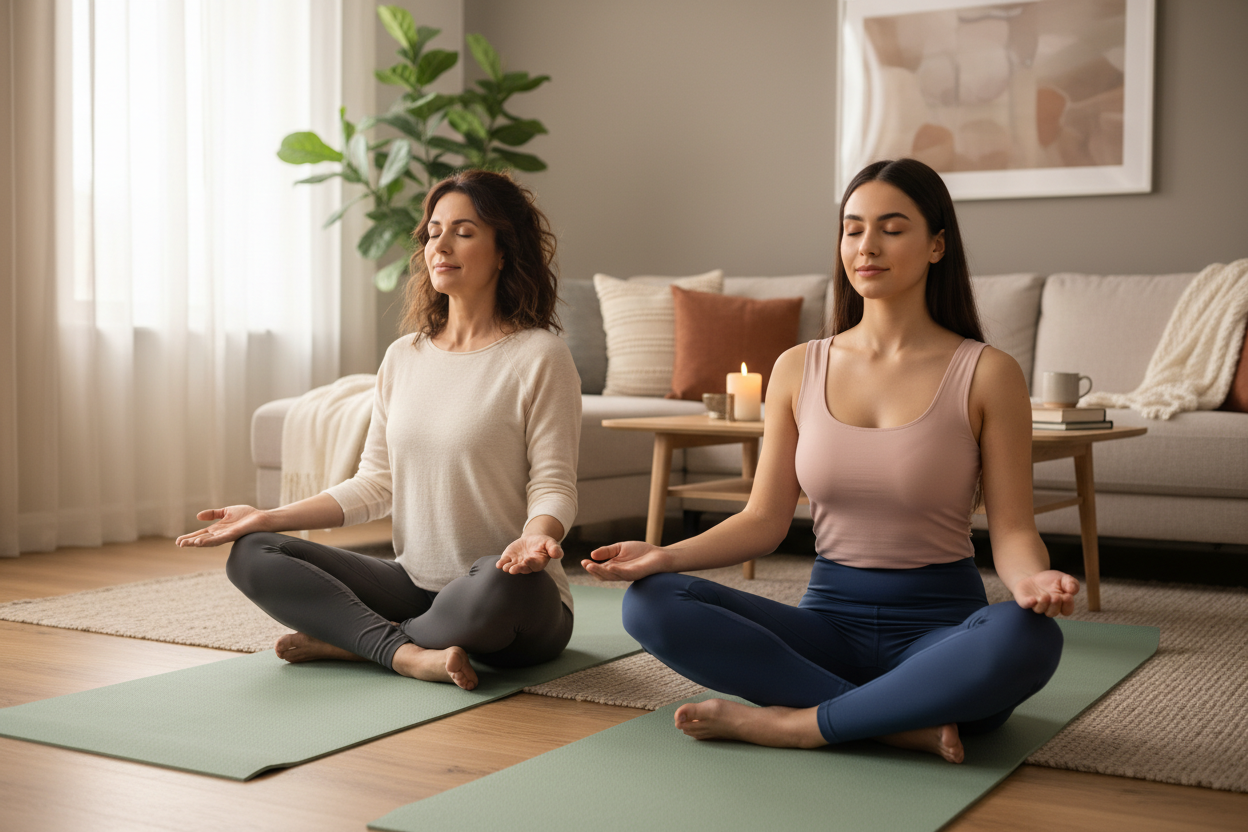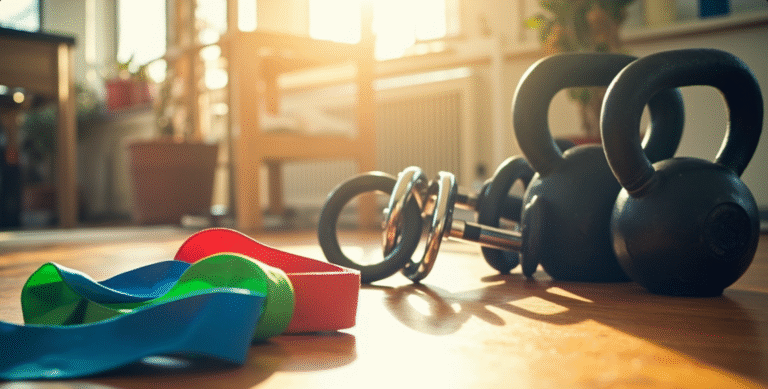How to Relieve Built Up Stress: Your Practical Guide to Actually Feeling Better
If you’ve been trying to figure out how to relieve built up stress without blowing your savings on a wellness retreat or pretending you suddenly love ice baths, take a deep breath—you’re in the right place. Think of this as the kind of guide you’d get if a slightly overcaffeinated friend who’s done way too much reading on stress management invited you out for coffee and just spilled everything they know.
Look, I’m not gonna sugarcoat this—I used to think stress relief meant lighting a lavender candle and pretending my problems would just… dissolve into thin air. Spoiler: they absolutely did not. If you’re here because you’re desperately Googling how to relieve built up stress at 2 AM while your brain replays every awkward thing you’ve ever said, I see you. I’ve been you. Honestly, on some nights, I am you.
Stress isn’t just that annoying feeling that makes you want to scream into a pillow or eat an entire pizza by yourself (though to be clear, I fully support the pizza option). When it piles up over weeks and months, it becomes this heavy thing that sits on your chest and makes everything harder—sleeping, thinking, focusing, even being a remotely decent human to the people around you.
The good news? You don’t need a two-week vacation in Bali or a winning lottery ticket to deal with it. You just need a handful of strategies that actually work in normal, messy life—and maybe a little willingness to experiment, look slightly ridiculous in your living room, and admit that what you’ve been doing so far might not be working.
Understanding What Built Up Stress Actually Does to You
Before we get into how to relieve built up stress in a real, practical way, it helps to know what’s actually going on under the hood. Because when you understand what your body and brain are trying (badly) to do, all the tools you’ve heard about suddenly seem a lot less random and a lot more “Ohhh, that’s why that helps.”
When you’re stressed, your body pours cortisol into your system—this “fight or flight” hormone that’s supposed to help you outrun actual danger, like a bear or a stampede or whatever our ancestors were dealing with. Now, instead of bears, it’s traffic, deadlines, and a group chat that will not stop. A little cortisol? Totally fine. It helps you focus and react quickly. Cortisol camping out in your system like it signed a year-long lease? That’s when things get messy.
There’s research published in Psychoneuroendocrinology showing that chronic high cortisol levels can mess with everything—your weight, your memory, your blood pressure, your immune system. Your body basically starts treating your average Tuesday like a full-scale emergency. That’s why you feel exhausted even when, technically, you “haven’t done that much.”
What cracks me up (and not in a fun way) is that our bodies still haven’t figured out we’re not running from lions anymore. Most of our stress now comes from passive-aggressive emails, money worries, and that one coworker who microwaves fish in the break room. But our nervous system responds as if all of that is life-or-death. Thanks, evolution. Truly helpful.
The symptoms are probably familiar: headaches that won’t quit, shoulders so tight they’re practically earrings, stomach issues for no obvious reason, exhaustion that sleep doesn’t fix, and that charming habit of clenching your jaw so hard at night you wake up with a sore face. Mentally, it shows up as irritability, brain fog, feeling totally overwhelmed, and this vague sense that you’re dropping balls somewhere but you’re too tired to figure out where.
None of that makes you weak. It just means your stress response has been stuck in the “on” position for too long. The rest of this guide is basically about how to nudge that switch back toward “off,” or at least “not constantly blaring.”
The Movement Solution: Getting Your Body to Help Your Brain
Here’s something I wish someone had told me earlier: you cannot outthink stress. I tried. I went full spreadsheet mode on my life, convinced if I just organized hard enough, I’d relax. Spoiler: I did not. Trying to “logic” your way into calm is like trying to negotiate with a smoke alarm. Sometimes you just have to open a window and move.
Exercise is probably the most well-researched tool we have for stress relief. A study in the Journal of Clinical Psychiatry found that regular physical activity can be as effective as medication for reducing anxiety in some people. That doesn’t mean you need to suddenly love burpees or sign up for CrossFit at 6 AM. This is not that kind of pep talk.
When I’m trying to figure out how to relieve built up stress through movement, I start with one question: what do I actually not hate today? Some days that’s blasting embarrassing early-2000s pop and dancing around my kitchen like I’m in a low-budget music video. Other days, it’s just walking around my neighborhood and silently reviewing everyone’s landscaping choices. The point isn’t performance—it’s giving your body a way to burn off some of that adrenaline and cortisol your brain’s been hoarding.
Yoga deserves a special shout-out because it’s like a two-for-one deal: movement plus intentional breathing. I used to think it was just stretching for people who own too many crystals. Then I tried it during a brutal deadline week, when my neck felt like it had fused into one concrete block. Holding a warrior pose and actually focusing on my breath did something to my nervous system I wasn’t expecting. It felt like someone turned the volume down inside my own head.
One important thing, though: this only really works if you do it somewhat regularly. Working out once and expecting all your built up stress to vanish is like watering a plant a single time and being shocked it died. Aim for small, consistent movement—most days of the week if you can—so your body actually learns, “Oh, we’re not always in danger. Good to know.”
The Breathing Techniques That Actually Work (And Don’t Feel Totally Ridiculous)
I get it—being told to “just breathe” when you’re stressed is infuriating. If it were that simple, we wouldn’t be here. But the right kind of breathing? That can be surprisingly powerful, and yes, there’s real science behind it.
You’ve got this major nerve highway in your body called the vagus nerve. Think of it as a direct line between your brain and your organs. When it’s activated through slow, deep breathing, it basically tells your brain, “We’re safe. Stand down. You can stop acting like we’re being chased now.” Research in Frontiers in Psychology shows that slow breathing exercises can lower cortisol and improve how your body responds to stress overall.
My go-to when I need to know how to relieve built up stress right now is the 4-7-8 breath. Inhale through your nose for four counts, hold for seven, exhale through your mouth for eight. The first few rounds feel a little awkward, like you’re learning to manually operate your lungs, but then your shoulders drop a bit and your brain feels a tiny bit less loud. It doesn’t fix your life, but it can get you through the next 10 minutes.
Box breathing is another favorite, especially if you like structure: in for four, hold for four, out for four, hold for four. Repeat that “box” a few times. Fun fact: Navy SEALs use versions of this technique before high-stress missions. I use it before difficult conversations and crowded grocery stores. Same emotional energy, honestly.
The best thing about using breathing to relieve built up stress is that you can do it anywhere and nobody has to know. In the car. In the bathroom at work. In bed when your brain decides 3 AM is the perfect time to remind you of something embarrassing you did in high school. You don’t need equipment, apps, or a mat—just lungs and a tiny sliver of willingness.
Sleep: The Non-Negotiable Foundation

We need to talk about sleep. I know, it’s not glamorous, and you’ve heard “get more sleep” so many times your eyes probably roll automatically now. Mine did. I went through a phase where I actually said, “I’ll sleep when I’m dead.” Then my body replied, “Cool, let’s move that deadline up.”
When you’re trying to figure out how to relieve built up stress, sleep isn’t extra credit. It’s the foundation everything else rests on. During deep sleep, your brain literally clears out waste products, resets chemical levels, and organizes memories. Without that cleanup, you wake up already behind.
The American Psychological Association has data showing that people who sleep fewer than eight hours a night report much higher stress levels than those who get enough rest. Meanwhile, high stress makes it harder to fall asleep and stay asleep. It’s the most annoying loop: too stressed to sleep, too tired to handle stress.
What helped me was treating sleep like an actual non-negotiable appointment. Not a “if there’s time” activity. I set a bedtime alarm—not just a wake-up alarm. That little buzz at night reminds me: hey, future-you will hate you if you ignore this.
My wind-down routine is simple and shockingly low-glamour: no work emails or scrolling for at least an hour before bed (I fail at this sometimes, but I aim for it), a book that isn’t about productivity, and a bedroom that’s colder than feels reasonable at first. The National Sleep Foundation recommends 60–67°F for good sleep, which sounded absurd… until I tried it and started sleeping better.
We’ve turned exhaustion into a weird badge of honor, like the most tired person wins. But that’s not strength—that’s slow, quiet burnout. Getting enough sleep isn’t lazy. It’s the most practical, unsexy way to relieve built up stress and handle everything else life throws at you without coming apart at the seams.
The Social Connection You’re Probably Neglecting
Here’s a slightly uncomfortable truth: one of the most powerful ways to relieve built up stress is also one of the easiest to avoid when you’re overwhelmed—talking to other humans.

There’s a famous study from Brigham Young University that compared social isolation to smoking in terms of health impact. They found that chronic loneliness is about as bad for you as smoking 15 cigarettes a day. Fifteen. A day. Meanwhile, a lot of us respond to stress by quietly canceling plans, ghosting group chats, and retreating into our own heads.
When stress piles up, my default move is to hide—cancel plans, mute notifications, and pretend I’m too busy to talk. But every time I actually push myself to text a friend, hop on a call, or meet someone for coffee, I walk away feeling lighter. Not fixed, not magically calm, but less alone in it. Which counts for a lot.
The trick is to choose your people and your format. If you’re introverted, a big party is probably not your path to serenity. But a one-on-one walk, a long voice note rant, or a simple “Can I vent for a minute?” message? That’s doable.
Something strange happens when you say your stress out loud. The thing that felt huge and terrifying in your head becomes more manageable once it’s shaped into actual sentences. Other people can also point out where you’re being too hard on yourself… which, if you’re anything like me, is fairly often.
On the flip side, being there for someone else can quietly lower your own stress too. Volunteering, checking in on a friend, or even just listening for once instead of talking about your stuff—it pulls your brain out of self-focused worry and reminds you that you’re part of a bigger web of people. And that your worth isn’t based solely on how productive you are today.
The Power of Saying No (And Actually Meaning It)
If your calendar looks like a game of Tetris played by someone with a grudge, this section is for you.
Constant stress isn’t always about “big traumatic stuff.” A lot of the time, it’s death by a thousand yeses. Yes to every request. Yes to every extra shift. Yes to every social plan even when you know you’re at your limit. Learning how to relieve built up stress often means learning how to say one small, terrifying word: no.
For a long time, I thought saying no made me difficult or selfish. If someone asked for help and I said no, it felt like failing some invisible test. Then I came across a study in the Journal of Consumer Research that looked at the language people use when they’re trying to stick to boundaries. People who said “I don’t” instead of “I can’t” were much more consistent. “I can’t make it” sounds like you might be persuaded. “I don’t do weeknight events” sounds like a policy.
You don’t have to overhaul your life overnight. Start tiny. Say no to one thing this week that you would normally say yes to just because you feel guilty. See what happens. Spoiler: the world will not collapse. You might even feel a weird rush of relief.
And please, for the love of your nervous system, stop apologizing for having limits. “Sorry, I can’t take that on right now, my plate’s full” is enough. You don’t need a three-paragraph explanation. “I’m at capacity” is a complete sentence. The people who respect your boundaries will stay. The ones who don’t? That’s useful data.
Every time you say no to something that drains you, you’re saying yes to having a little more space to breathe, sleep, move, and do the actual things that help relieve built up stress instead of just piling on more.
Creative Outlets: The Underrated Stress Reliever
There’s something weirdly magical about making something—anything—with your hands or your mind. Even if it’s objectively terrible. Sometimes especially if it’s terrible.
Researchers at Drexel University found that just 45 minutes of creative activity significantly lowered cortisol, and it didn’t matter whether people were “good” at art or not. That part made me irrationally happy. You don’t need to be the next Picasso. You just need to show up with some markers, paint, dough, an instrument, your voice—whatever—and mess around.
When I’m trying to figure out how to relieve built up stress through creativity, I pick things where the stakes are low. Adult coloring books (yes, the cheesy ones—they work). Doodling during calls. Baking something lopsided that still tastes good. Rearranging a bookshelf so it looks vaguely pleasing to my very tired eyes.
Writing can be huge here too. Not picture-perfect journaling with headings and quotes. I mean “brain dump” journaling where you spill all the half-formed worries, frustrations, and what-ifs onto a page and don’t judge any of it. I have a notebook that no one will ever read where I just unload. Half of it is barely legible. All of it helps.
Music is another direct line to your nervous system. Singing alone in the car, playing an instrument badly, or just putting on a playlist that matches your mood—these things sound small, but they shift something. Research published in Trends in Cognitive Sciences shows that music interacts with the same brain systems involved in stress and emotion. So yes, that playlist you made during a low moment is more than just vibes. It’s medicine, in a very human way.
Nutrition and Stress: What You Eat Actually Matters
I wish I could tell you that how to relieve built up stress involves unlimited fries and energy drinks. Tragically, my body has repeatedly informed me this is not the case.
Food won’t magically delete your problems, but it absolutely affects how capable you feel of handling them. When I’m stressed and living on coffee, sugar, and vibes, everything feels ten times harder. When I eat semi-decently, I’m not suddenly enlightened—I’m just less on the edge.
Let’s start with the obvious villains: way too much caffeine, constant sugar spikes and crashes, and going so long without eating that you turn into the low-blood-sugar version of yourself that even you don’t like. When your blood sugar is all over the place, your mood and energy will be too, which makes built up stress feel even heavier.
On the supportive side, there are foods that genuinely help your body cope better. Omega-3 fatty acids (think salmon, sardines, walnuts, flaxseeds) have been shown to help with anxiety. A study in Psychosomatic Medicine found that omega-3 supplementation reduced anxiety symptoms by about 20%. That’s not nothing.
Complex carbs—like oats, quinoa, brown rice, sweet potatoes—support more stable energy and help your brain get a steady supply of fuel. Vitamin C–rich foods (oranges, strawberries, bell peppers) and magnesium powerhouses (dark chocolate, avocado, leafy greens) also play nice with your stress response. I personally lean on the “magnesium-rich dark chocolate” part pretty hard.
Hydration sounds boring until you remember that even mild dehydration can increase cortisol levels. If you’re always wired and tired, and also always forgetting to drink water until 4 PM, that combo is not helping. I’ve had to trick myself with a big water bottle on my desk so it physically stares at me all day.
Then there’s your gut. Around 95% of your body’s serotonin is produced in the gut, which means your digestive system has a shocking amount of influence over your mood. Probiotic foods like yogurt, kefir, kimchi, and sauerkraut can support a healthier gut environment, which in turn supports a more balanced brain. Your body’s one big interconnected drama, basically.
Nature and Outdoor Time: The Free Therapy Session
If someone could bottle what 20 minutes outside does for built up stress and sell it, they’d be a billionaire. Thankfully, nature is still free—at least for now.
A study from the University of Michigan found that just 20 minutes in nature significantly reduced cortisol levels. They called it a “nature pill,” which sounds cute until you actually try it and realize it’s weirdly accurate. Japanese researchers have studied “forest bathing” (shinrin-yoku), which is basically slow, intentional time in nature, and found lower stress hormones, better mood, and even healthier heart markers.
For a long time, I brushed this off. “Go outside” sounded too simple to matter. Then I let myself sit on a park bench for 15 minutes one insanely stressful afternoon, phone on airplane mode, just watching trees and people and a dog that was way too excited about a stick. And something in my body softened that hadn’t relaxed in days.
You don’t need a cabin in the woods or an ocean view for this to work. A quiet corner of a park. Your back porch. Even a small patch of grass and a tree in the middle of a city. There’s research in Environment and Behavior showing that simply looking at greenery through a window can reduce stress. Your nervous system is surprisingly easy to impress sometimes.
These days, I sneak in little “nature doses” whenever I can: taking a walking meeting instead of sitting at my desk, drinking my coffee outside, or just opening a window and actually noticing what’s out there for once. Add some sunlight to the mix, and you’re also helping reset your circadian rhythm, which feeds back into better sleep, which feeds back into—yep—less built up stress.
Mindfulness and Meditation: Beyond the Hype
For years, I was firmly in the “meditation is not for me” camp. I pictured super calm people with perfect posture and no intrusive thoughts. Meanwhile, my brain is more like 37 tabs open with music playing from somewhere. Meditating sounded like asking chaos to sit quietly. Nice idea, not realistic.
Then I learned that meditation isn’t about having no thoughts. It’s about noticing the thoughts, not letting them drag you around by the collar. And more importantly, it’s about practicing that skill over and over until your brain slowly learns a new trick: “Oh, I don’t have to believe every single anxious story I tell myself.”
Mindfulness is just paying attention to the present moment—what you’re doing, what you’re feeling, what you’re sensing—without immediately slapping a label of “good” or “bad” on it. That’s it. Simple concept, not-so-simple practice.
A meta-analysis in JAMA Internal Medicine reviewed 47 studies and found that mindfulness meditation programs provided meaningful improvements in anxiety and depression. That’s research-speak for “this isn’t just a woo-woo trend; it does something.”
When I’m trying to use mindfulness to relieve built up stress, I lean on apps because I need someone with a calm voice telling me what to do. I’ve used Headspace, Calm, Insight Timer—honestly, they all have decent simple sessions. I started with 3–5 minutes because anything longer felt like a negotiation with my own brain. Some days I still tap out early. That’s okay.
Body scan meditations are especially helpful if your stress lives in your muscles. I didn’t realize how much I was clenching my jaw and shoulders until someone said, “Now relax your jaw,” and I thought, “Oh. That was an option this entire time?”
You’re not trying to become a different person with meditation. You’re just giving yourself one more way to notice when your stress is spiking and gently turn the volume down, even just a notch.
Professional Help: When DIY Isn’t Enough
Here’s the part a lot of people quietly skip: sometimes “breathe more, walk more, sleep more” isn’t enough. If you’ve tried multiple ways to relieve built up stress and you’re still constantly on edge, drained, or spiraling, it might be time to get backup.

Therapy isn’t just for people in full-blown crisis. It’s for anyone whose internal wiring is making life harder than it needs to be. Cognitive Behavioral Therapy (CBT), for example, has a solid pile of evidence behind it for stress and anxiety. It helps you spot the thought patterns that pour gasoline on your stress and replace them with something more accurate and less brutal.
I waited way too long to try therapy because I thought, “Other people have it worse. I should be able to handle this myself.” That’s like saying you shouldn’t go to a mechanic because someone else’s car is more broken. It makes zero sense, but we do it all the time with mental health.
If in-person therapy feels out of reach, there are online options like BetterHelp and Talkspace, and some workplaces offer Employee Assistance Programs that include a few free sessions. Community mental health centers often have sliding-scale fees. You don’t have to announce it to the world. You just have to start somewhere.
Medication is another tool that deserves way less stigma. If your brain chemistry has basically been marinating in stress for years, sometimes it needs more than lifestyle changes. Under the guidance of a psychiatrist or doctor, medication can give you enough breathing room to even use the other tools you know about. It’s not cheating. It’s treatment.
The main thing I want to say here is: if you’re drowning, you don’t have to keep trying to “self-care” your way out alone. Asking for help is not an admission that you’re weak. It’s actually one of the most practical, grown-up ways to relieve built up stress that’s become unmanageable.
Building a Sustainable Stress Management Practice
Okay, so now you’ve got about fourteen different ideas bouncing around your brain. Breathing! Walking! Boundaries! Veggies! Therapy! Great. But how do you turn all this into something you’ll actually stick with when life gets chaotic again?
First: start seriously small. Like, “laughably small, is this even doing anything?” small. Maybe it’s one five-minute walk after lunch. One 4-7-8 breathing session before you open your email. Going to bed 15 minutes earlier. If you try to rewrite your whole life in a week, you’re just sneaking stress in through the back door.
Second: attach new habits to things you already do. Breathe deeply while your coffee brews. Do a 60-second stretch every time you close your laptop for the day. Step outside for three minutes when you finish a tough call. It doesn’t have to be dramatic. Little, consistent actions add up in a way that “I’m going to change everything starting Monday” never does.
I also like keeping a super low-effort log on my phone. Nothing fancy—just a note where I jot down, “Walked 10 minutes, felt slightly less murderous,” or “Stayed up too late scrolling, felt wrecked.” Over time, you start to see your own patterns. That makes it easier to know which things actually relieve built up stress for you specifically, instead of guessing.
And please remember: there will be bad days. You will have weeks where you don’t move much, sleep badly, eat whatever’s closest, and forget every breathing technique you’ve ever learned. That doesn’t reset everything back to zero. It just means you’re a person. When you notice it, you can gently steer yourself back—no dramatic self-lecture required.

The Bottom Line on Relieving Built Up Stress
If you’ve made it all the way here, first of all, I’m impressed. Second, it probably means you’re really ready to figure out how to relieve built up stress in a way that works for your actual life—not the fantasy life where you wake up at 5 AM to meditate and juice kale.
There’s no single magic solution, but there is a combination that will work for you. The physical tools—movement, breathing, sleep, food, nature—help your body step out of constant alarm mode. The mental and emotional tools—boundaries, mindfulness, therapy, connection, creativity—help your brain stop turning every inconvenience into a five-alarm fire.
What works for me won’t map perfectly onto you, and that’s okay. Your job is to experiment like a scientist who also occasionally cries in the shower. Try things. Notice what genuinely makes you feel a little bit better—lighter, calmer, more like yourself. Do more of that. Let go of the stuff that just makes you feel guilty or “behind.”
Built up stress doesn’t evaporate overnight, especially if it’s been stacking up for months or years. But it does respond to small, consistent changes. You can absolutely get to a place where stress is something you manage instead of something that manages you—where it’s an occasional, annoying houseguest instead of a permanent roommate hogging all the space.
You deserve to feel better. Not someday “when things calm down” (they won’t, not magically), but now, in the middle of the mess. Start somewhere. Start small. Pick one thing from this list today and try it. Your future, less-frazzled self is already rooting for you.








2 Comments
Comments are closed.